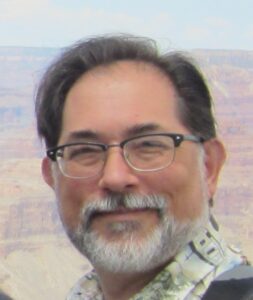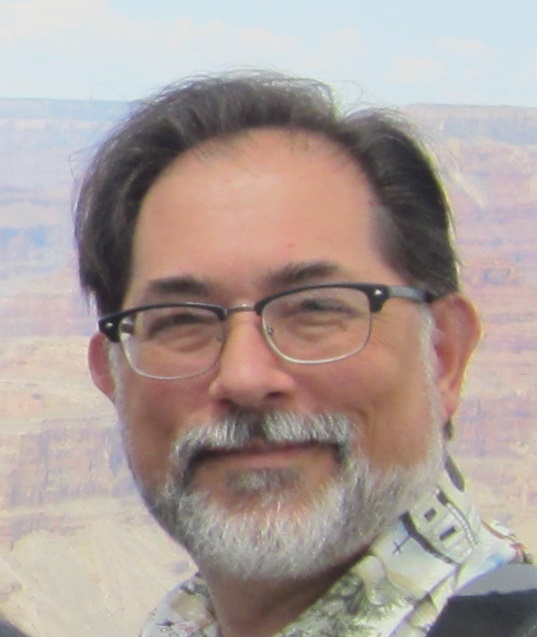 Change can be hard. As human beings we are, by nature, resistant to change…especially when we think what we have right now is just fine as it is. But God and his creation are not static. Our relationship with God is dynamic…living, breathing, and constantly evolving, and sometimes that means altering course to keep moving in a positive direction.
Change can be hard. As human beings we are, by nature, resistant to change…especially when we think what we have right now is just fine as it is. But God and his creation are not static. Our relationship with God is dynamic…living, breathing, and constantly evolving, and sometimes that means altering course to keep moving in a positive direction.
As catechists we teach that God always meets us where we’re at. But this idea also prompts us to ask: Is our RCIA process meeting our people where they’re at?
What happens when we’re not open?
For many years now, leaders in the RCIA have been urging us to examine our processes in ways that can better deliver on the promises of the RCIA. This not only has brought us a better understanding of the stages of conversion (as embodied in the steps of Inquiry, Catechumenate, Purification and Enlightenment, and Mystagogia), but also helps us to recognize that the desire to begin the process may not always follow our traditional academic calendar. This is why moving to a year-round process is so important.
Imagine for a moment a person who has been thinking about becoming Catholic and after weeks or months of consideration finds the courage to call the parish office, only to be told that the process has already started and that they should call back again in the fall. I’m sure many of you are familiar with this scenario because I’ve seen it play out far too many times, including at my own parish.
Is this how we invite people into relationship with God and his church? I’m sure you will agree with me that the answer to this question should be a resounding “no!” But how exactly do we do this? How can we move from a traditional academic model to a year-round process? What does it really take in terms of actions and time and resources?
We’re in the business of making change
I’m here to tell you that it’s not as hard as you might think. Having been able to accomplish this at my own parish, I’ve been able to identify a series of steps that you can use to move your process to a year round model. This kind of change doesn’t happen overnight, but with my sincere thanks to Nick Wagner and TeamRCIA, I’ve been given the opportunity to share these steps with you through a continuing series of articles. Every month I will focus on a different step and how you might best adapt it to your parish needs.
I realize that change is difficult, especially when it comes to your RCIA process. You immediately start thinking about all the reasons why this or that can’t be done or what additional resources might be needed. But I ask you to prayerfully consider this: Change is our business. The people who come to us are looking for change, and they’re coming to us to find it. The change they’re looking for is bring God into (or back into) their lives, and finding that path through our Catholic faith. The whole RCIA process (as well as all Sacrament preparation) is one of changing our lives to be more like Christ. It’s a change like that takes time, patience, prayer and fortitude… all of which we as catechists and team members try to provide through our RCIA processes.
So if you think changing your RCIA process is something that can’t be done, I challenge you to think again. As with our catechumens and candidates, it will take time, patience, prayer and fortitude, but I like to think if our parish can do it, so can yours. So I look forward to sharing with you these various steps with you, and as part of my own ongoing formation, I’d like to hear about your stories and challenges, along the way, and together we can continue to spread the gospel.
Your Turn
What questions do you have about making the switch to a year-round RCIA process? If you’ve made this change, what encouragement would you offer to other RCIA teams who are ready to change? Leave your comments below!

John McGlynn is the Director of Adult Faith Formation and RCIA at Our Lady of Refuge Catholic Church in Long Beach, California. John became a catechist and lay minister where he grew up, Our Lady of Lourdes parish in Tujunga, CA, where he served as a junior high catechist, youth minister, and young adult minister, as well as singing with the contemporary choir and serving on the liturgy committee. After getting married and moving to Long Beach, he joined the RCIA team at Our Lady of Refuge in 1997, and was appointed director in 2007. John has regularly attended numerous catechetical and RCIA workshops over the last 35 years, including the Los Angeles Religious Education Congress, the North American Forum on the Catechumenate, and with TeamRCIA. After 12 years of Catholic education, John earned a BS in Business Administration from the California State Polytechnic University, Pomona. John also owes a lot of thanks to his wife Pat, who is a Theology graduate from Loyola Marymount University and served as a parish Director of Formation for 20 years.









Example of yea-round RCIA process
https://acmrcia.org/blog/integrating-systematic-catechesis-year-round-rcia-process
Just a comment that I am very excited for this series! I started a position as DRE last summer in a large parish, but our RCIA team had been disbanded when I arrived. So I’ve tried to restart the program but it took several months to get rolling, and I’m trying to open up our Wednesday sessions as general adult faith formation. Everyone’s schedule is so different and life is so hectic with kids, health, and work… it has been very challenging to get a group together and I am looking for tips to create a cohort while still being flexible for individual needs without spending all my time on RCIA.
At Saint Rita of Cascia Parish in Aurora, Illinois we have been working for 3 years to implement a year-round Catechumenate. We began with a monthly session to pray, read a little scripture and share how God has been working in our lives. Those that attend are then given a small book of prayers and asked to pray at least 5 minutes every day. We also encourage them to attend Mass every weekend. We watch for them and greet them when we see them at Mass. We also invite them to any events happening in the parish during the following month.
They are also invited to the next monthly discovery session. As we can manage it we do a personal interview to find out their individual needs and desires. As we gather a small group with the same needs we begin weekly faith sharing groups using the Bible and the Adult Catechism as resource books. We always help them realize that the Mass is their classroom and begin all sharing with reflections on the past Sunday’s liturgy. e also incorporate parish events into the sharing sessions as is possible.
We are still learning but it has been a very positive journey. It is always a little different as we go along. No group of people is exactly he same and no one can say exactly when each is ready to receive whatever Sacrament they need.
We started the year around process two years ago this coming April. It took us almost a year to come up with what would work for us.
Basically we have 4 Inquiry cycles each year with every meeting open to new inquirers. The secret I think has been to make sure that it is a very welcoming session. Every time someone new comes we stop and go around and introduce everyone. I ask 3 questions: What is your name? Have you been baptized? Why are you here? During the following sessions people open up, but knowing they are with all kinds of people who may be like them has proven fruitful.
One of our challenges is that we have been so successful with people entering at their own time that we have been having a lot of Rites of Acceptance and Welcome during the year as well as people coming into the church.
Our pastor has been very supportive and the teams we have: Inquiry, RCIA, Purification and Enlightenment, Hospitality, Dismissal, Mystagogy and a new one called Mentoring for people who have difficulty coming to regular sessions because of work or other problems have helped us be successful. We also have a leadership team to make sure we are going in the right direction and to help discern what we need to make the program a success..
The RCIA sessions are videoed every week so if someone misses a session they can log into our parish website and watch the witness, announcements and session topics.
We have a revolving set of topics, about 48 that are part of the RCIA portion and 11 that comprise the Inquiry.
We have seen growth in the people who have entered the church. We have 4 who are enrolled in advanced degrees programs in Theology at several Universities and many are now in ministries in our parish.
I thank all of you at Team RCIA for all the helpful topics I have followed. Keep up the good work.
Thank you John. Eager to see how a whole year of R.C.I.A. would unfold.
Just wondering… I have heard the following comment so often that I have decided today is the day to put my thoughts to paper.
In your bio I see the words “…when I got married”
When we go to the store we get groceries, When we go to a wedding we go to MARRY or to attend a wedding.
In the sacrament of marriage the couple are the ministers. The priest is the presider and a witness.
(I hear people say “The minister will marry us” but he doesn’t. We marry each other… The couple each declare their vows to the other. )
So, perhaps a more accurate way of speaking about marriage (instead of “We GOT married..or we are going to GET married)
is simply to say When we marry……. We will be marrying……I married…______________.After marrying __________________
I know it sounds picky but I think the shift in words shifts our understanding of marriage, emphasizing the couples role as well as their dignity.
I’m interested in your comments.
Here in Gilroy, Saint Mary’s, we struggle with this annually. We are trying to establish quarterly reunions to continue mystagogy. We hold monthly inquiry sessions in June, July, & August. I am happy to say that our front office refers inquirers to our team; they are not told to come back in the fall. We interview year-round and I find prospective candidates in my baptism and marriage prep work. I like the description of a sponsor scout and we will try to implement this ministry.